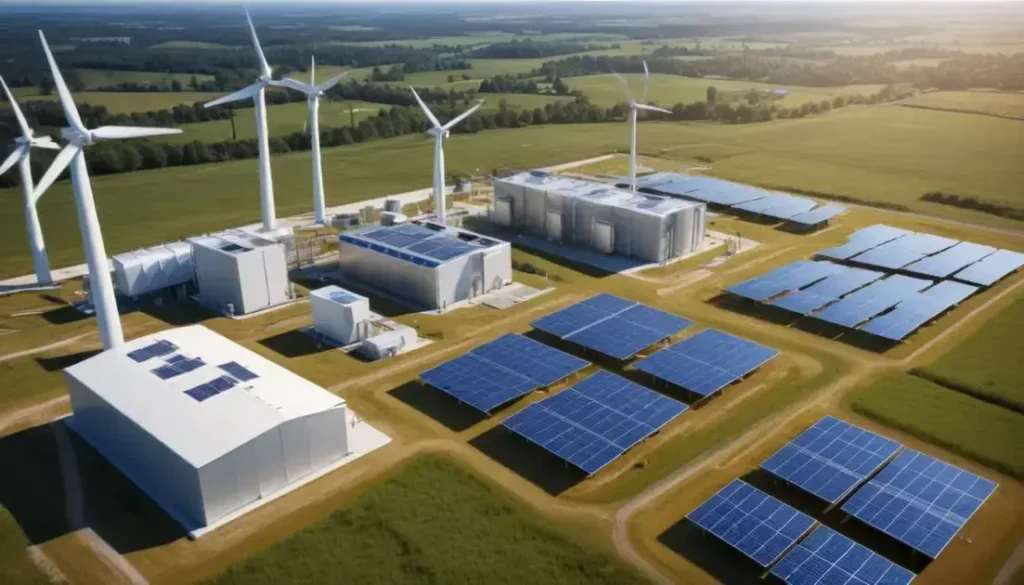AI emissions have surged dramatically due to increased energy consumption from technology firms, necessitating urgent shifts towards sustainable practices to mitigate their environmental impact.
In recent years, AI emissions have escalated dramatically, raising concerns about sustainability and energy use. What does this mean for our future?
Sharp rise in emissions from major tech firms
The sharp rise in emissions from major tech firms highlights a critical issue as the world embraces digital transformation. In recent years, the surge in AI technologies has led to a significant increase in energy consumption, contributing to a staggering rise in carbon footprints.
Leading companies, while advancing in innovation, report that their energy demands have skyrocketed by over 150% since 2020. This escalation raises questions on how swiftly these firms can pivot towards sustainable practices. Implementing energy-efficient solutions is paramount for balancing technological growth and environmental responsibility.
Challenges Ahead: Despite the push for greener alternatives, many firms struggle with the transition. The reliance on data centres powered by fossil fuels remains a considerable hurdle. Addressing this requires a dual approach: enhancing renewable energy sources and optimising AI systems for energy efficiency. Some companies have started investing in green technologies, but it demands a cohesive effort across the industry.
The need for accountability and transparency is evident. Data collection and analysis can aid in measuring emissions more accurately, helping companies formulate strategies that align business objectives with sustainability goals.
Efforts towards sustainable AI practices
The drive towards sustainable AI practices is gaining momentum as tech companies recognise their responsibility towards the environment. Many organisations are exploring innovative ways to reduce their carbon footprints while continuing to innovate. Implementing energy-efficient algorithms can significantly decrease the energy consumption associated with AI processes.
Research and Development play a crucial role in this transformation. By collaborating with environmental scientists, tech companies aim to develop frameworks that prioritise ecological sustainability. Initiatives such as carbon-neutral data centres have emerged, leveraging renewable energy sources like solar and wind to power AI operations.
Furthermore, companies are increasingly investing in carbon offset programmes. These programmes involve compensating for emissions by investing in projects that reforest areas or enhance renewable energy initiatives. This not only mitigates the environmental impact but also fosters a positive corporate image.
Moreover, open-source platforms are being utilised to share best practices in sustainable AI development. This collaborative approach enables innovations to spread quickly, ensuring that more firms can adopt green technologies. As sustainability becomes a core principle, the future of AI looks promising, aligning technological progress with environmental stewardship.
In Summary, the Future of AI and Sustainability
As we look forward, it is clear that the relationship between Artificial Intelligence and sustainability is crucial. Companies must commit to reducing their environmental impact while continuing to innovate with AI technologies.
By adopting renewable energy sources, improving algorithm efficiency, and participating in carbon offset initiatives, tech firms can lead the charge towards a more sustainable future. Collaboration and open communication within the tech community will foster the exchange of ideas and best practices.
In the end, integrating sustainability into AI operations is not just beneficial for the planet—it is essential for businesses to thrive and grow in an eco-conscious world. Let’s embrace these changes and pave the way for a greener, smarter future.
Frequently Asked Questions
What is the impact of AI on global emissions?
AI technologies have contributed to a significant increase in energy consumption and emissions, raising concerns about their environmental impact.
How can companies reduce their carbon footprint in AI operations?
Companies can reduce their carbon footprint by implementing energy-efficient algorithms, using renewable energy sources, and investing in carbon offset programmes.
What are some examples of sustainable practices in AI?
Examples include utilising carbon-neutral data centres, optimising algorithms for efficiency, and collaborating on open-source platforms to share best practices.
Why is collaboration important for sustainable AI development?
Collaboration allows companies to share knowledge and innovations, accelerating the adoption of sustainable practices across the industry.
How can consumers support sustainable AI initiatives?
Consumers can choose products and services from companies prioritising sustainability, advocating for environmentally friendly practices.
What is the future of AI and sustainability?
The future of AI and sustainability looks promising, as companies increasingly align technological advancements with ecological responsibility.


